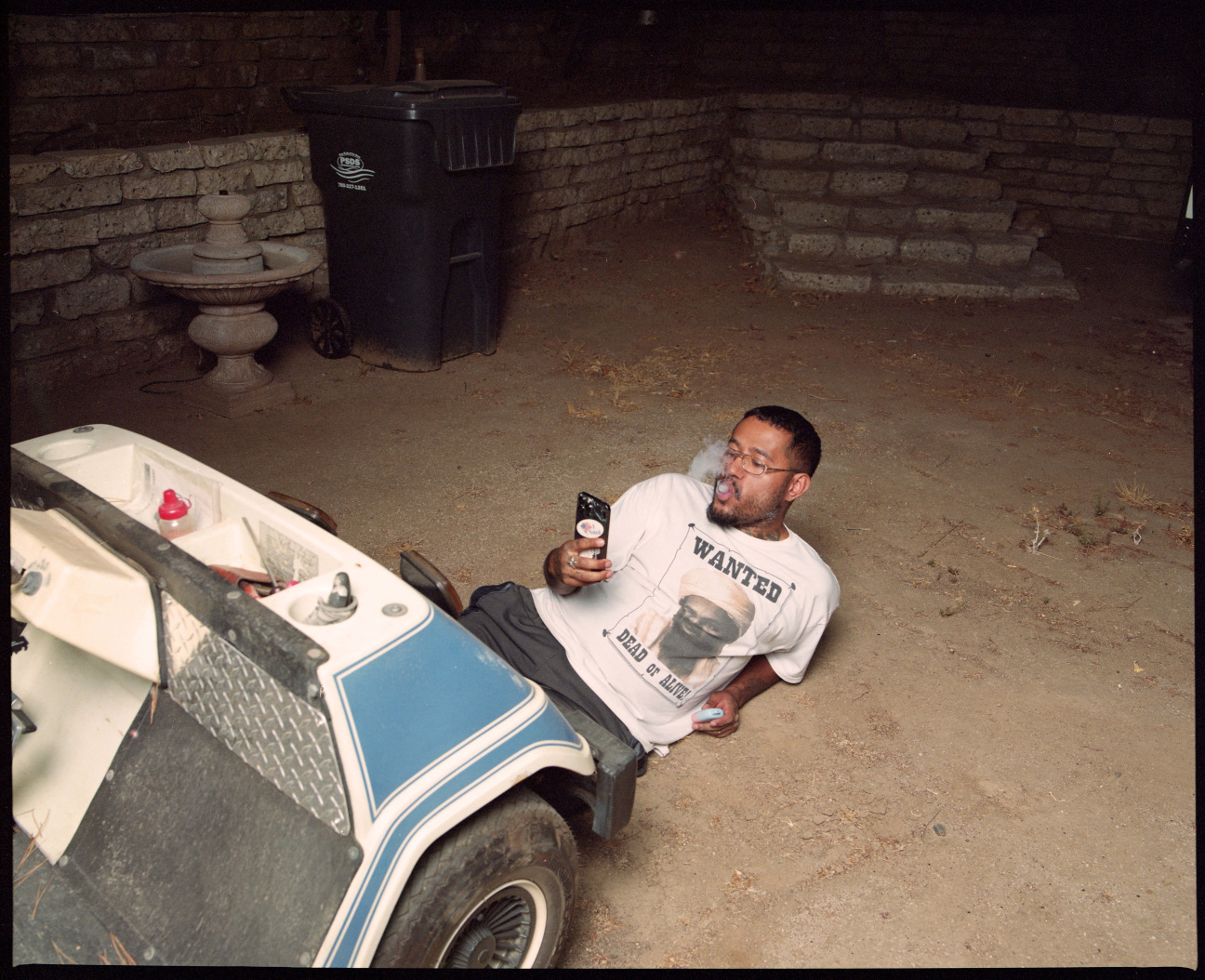
Victor Barragán and Betsy Johnson are no strangers to taboo. Barragán launched his namesake label in 2016, shortly after moving to New York from Mexico City, and wooed the fashion set with designs that collapsed religious iconography, gay paraphernalia, and Internet subcultures into viral garments worn by the likes of Madonna and Rosalía. Then the designer made a radical decision: to drop out of the fashion week rat race and show off-calendar and outside the industry’s sanctified locations.
His last presentation, which took over a militarized airport in Mexico City and reveled in the language of cults, Catholicism, and weaponized nationalism, was a testament to his ability to constantly upend what we expect from a brand. Johnson is a sartorial Swiss army knife—she casts, styles, creative directs, designs, and shoots—whose work has caught the eye of rappers, luxury houses, and the Internet alike. Last year, she launched Products, a project that alchemizes her interests in the aesthetic consequences of commodification and class. Beloved as she is by fashion insiders, Johnson is unafraid to skewer the industry’s shortcomings and package them for all to see. Here, the friends share how they drown out the noise—and make space for the stories they want to tell.
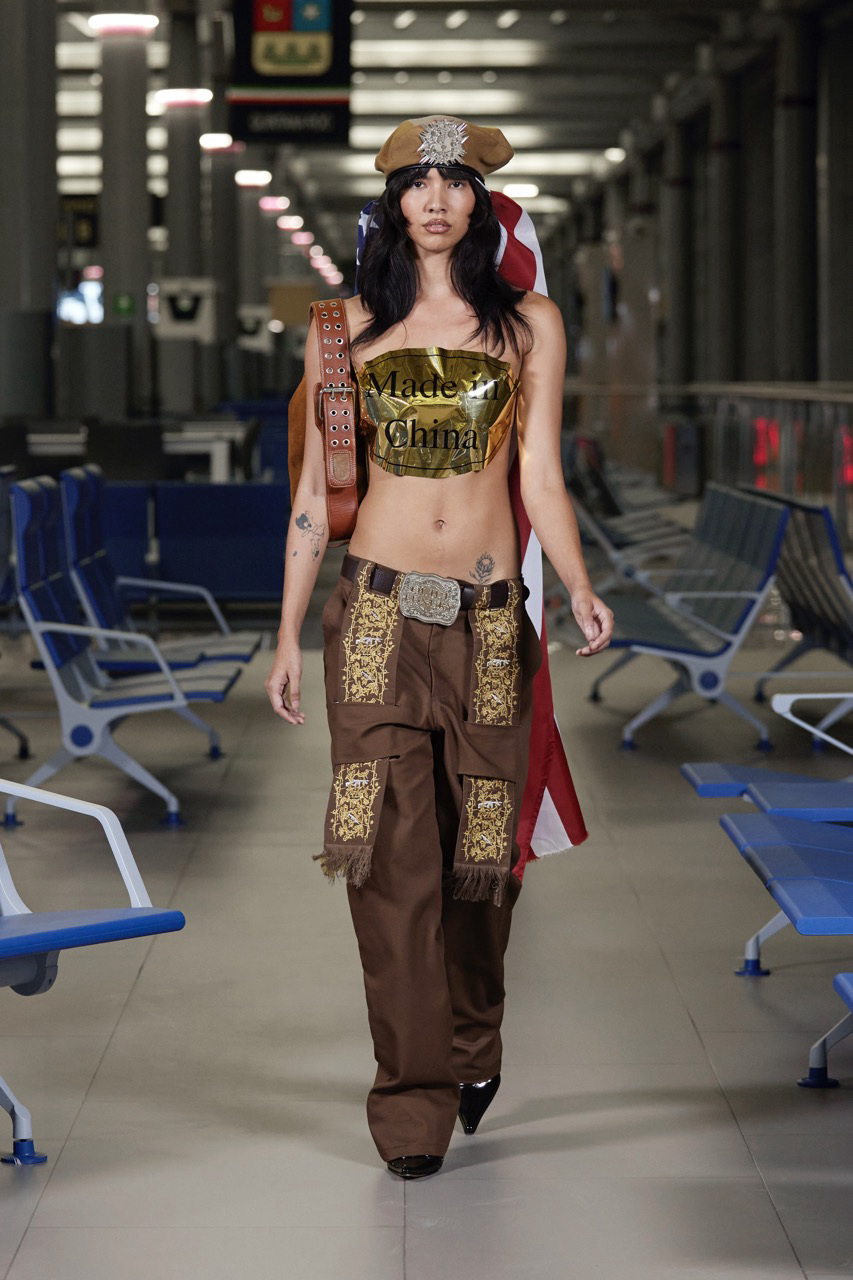
Betsy Johnson: I knew your work for maybe five years without knowing [the person] behind it. I have no idea how I came into your sphere.
Victor Barragán: You worked with some of my friends in Europe. Then I started seeing your name popping up all over the world. It was funny how we met at the Shayne Oliver show—I had no idea you were gonna be doing the styling.
Johnson: We were both wallflowers trying to stay out of the way of the chaos. How did you get into fashion?
Barragán: I come from an architecture and industrial design background. Then I quit and started doing fashion [full-time]. I started doing things here and there, and then I got popular on Tumblr really quick. I got pulled onto the fashion calendar kind of by accident, because people contacted me like, “We love what you’re doing, we wanna support you.” They threw me into the mix in New York, and I didn’t know what I was doing.
I always took fashion as performance mixed with a product. It was about storytelling for me. I started mixing everything: my art, my sculpture, my clothing, my music. You do something similar—you build your whole world in terms of the people you collaborate with and how you present things. You put yourself in the spotlight a lot, in your own language [which I do too]. We put ourselves out there, but we are not too reachable.
Johnson: People that are these “trouble-causing provocative auteurs in their field,” they’re always 360-degree kinds of people who are in their own universe. To be a storyteller, you have to have a story to tell. It’s a self-informed process. Every time I step into someone’s project, I’m never under a title. I just come in and support whatever storytelling they’re doing. It’s a collaboration, not this structured corporate format.
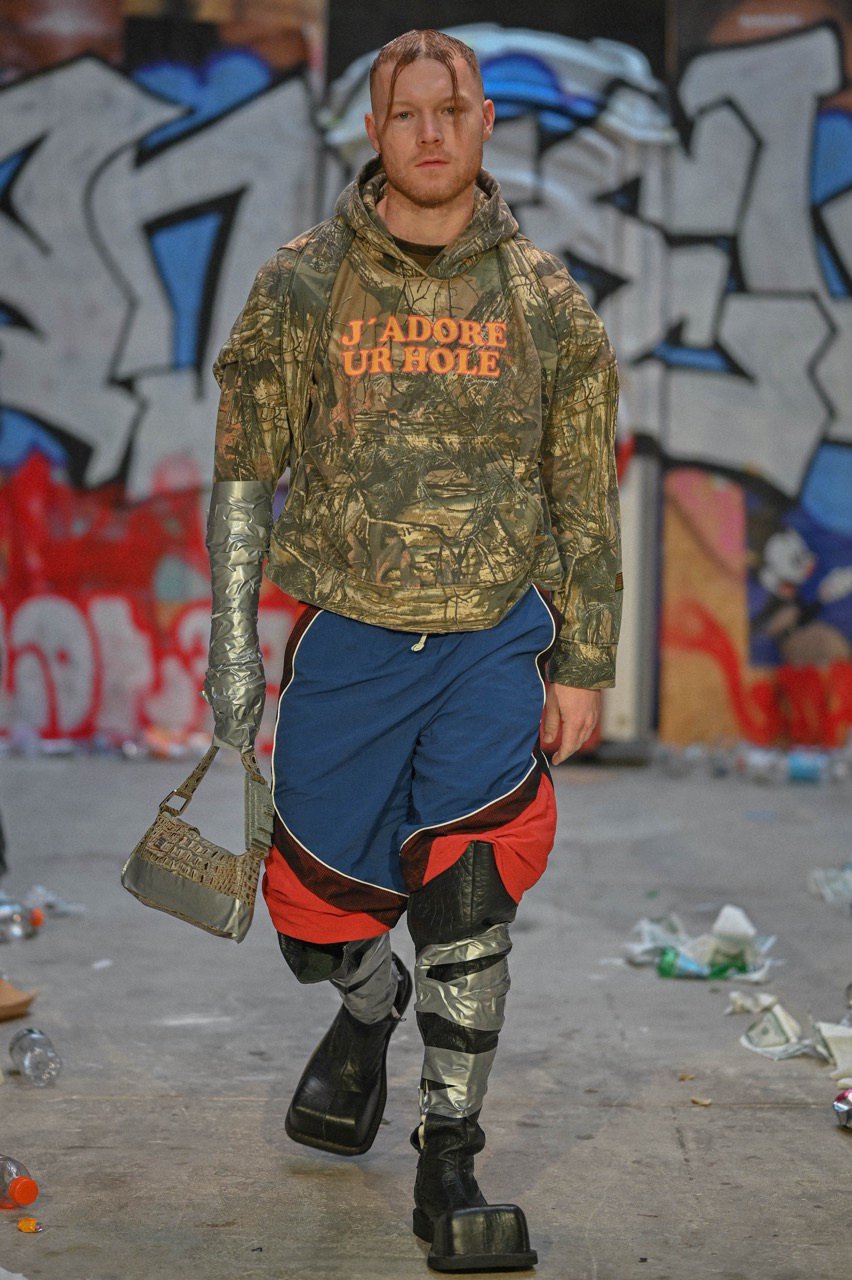
Barragán: How does your relationship with your audience influence the evolution of your work? You have so much attention online. People track you.
Johnson: These Reddit threads, like, “She’s here!” I’m like, Whoa, I’m actually being tracked. [Laughs] The person I am in real life is so different to who I portray online. That’s part of the weird little character-building process I’ve gone through, and it’s a really liberating space to be in. It allows me to create and put everything I’m thinking into my work.
Barragán: My image online looks really crazy. It’s totally a performance. When people meet me, I’m like, shy. I’m not as crazy as I look on the screen. I express so much with my work, maybe not with words. My mind and words start sticking sometimes, so I use the brand as a form of expression. But I don’t interact too much with people I don’t know online. It’s hard and can be an empty place to do that, but I feel like the audience always wants to be part of it, and I love that. I feel like I’m not talking to a wall.
Johnson: Do you feel like there’s a next step for you with the community that you’ve built with your storytelling, to push people to also be provocateurs with everything going on in the global cultural landscape, which is a whole other spectrum of bullshit?
Barragán: You always feel like you have to push it more. My work became more conceptual through the past years. Now, I’m doing a movie and … there’s my love for music. I love how these intersections keep provoking fashion in a different way. It’s always the more risky people who take these new ways to communicate, and then you will see all this resonate on bigger brands in the future, for sure.
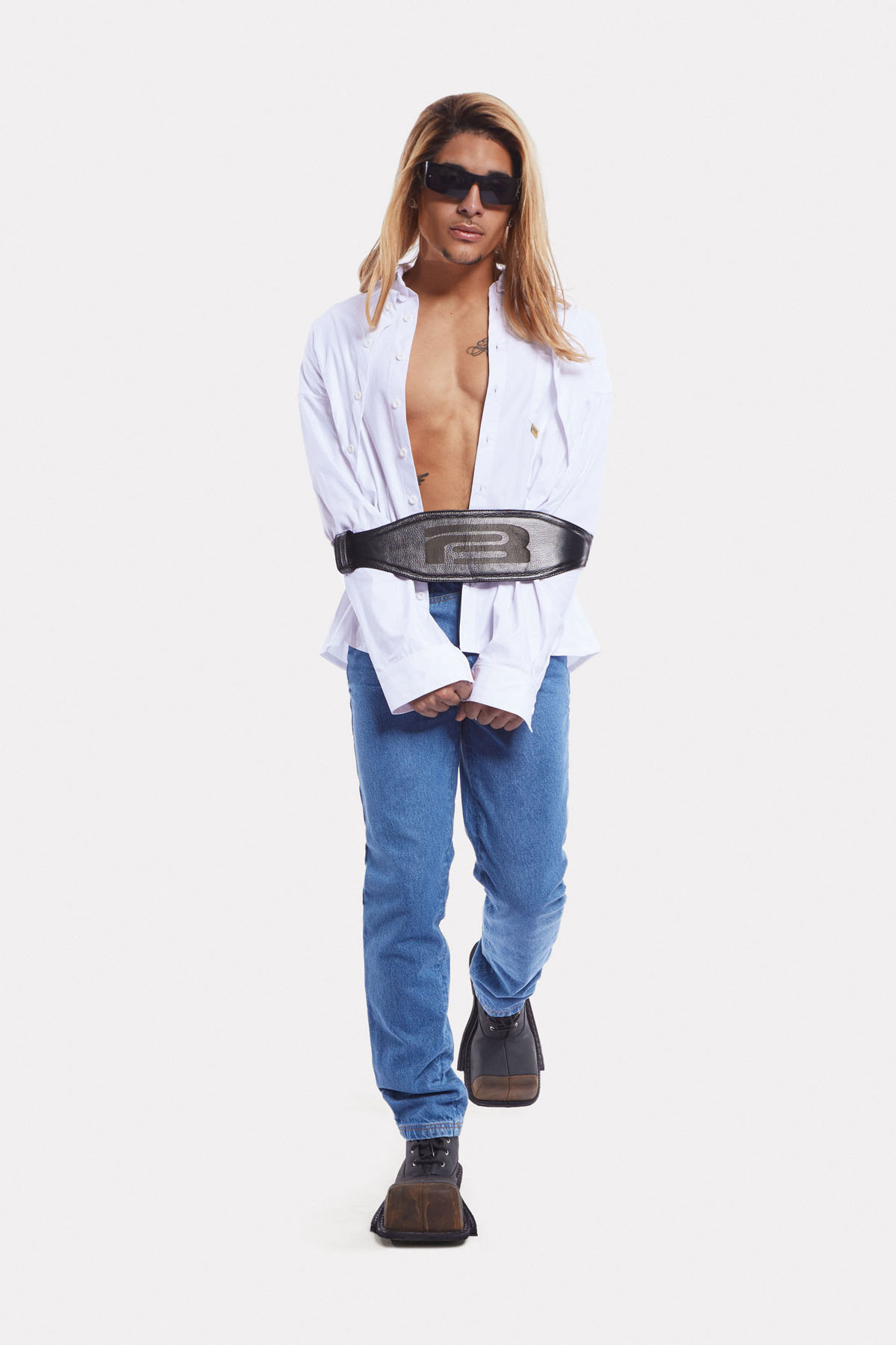
Johnson: I feel like [bigger brands] are getting less risky. Everyone’s scared out here. The market’s so fragile. When I’m in my studio, we’re talking about the craziest ideological concepts and … we’re getting into the nuances. When people come in, they’re like, “Wow, these conversations are crazy.” I’m like, “Yes, if you work at [a big house] you’re knocking out email marketing campaigns.” You’re not really getting into the nitty gritty of cultural references and how they translate into the work.
Barragán: I see how the bigger brands have to move so fast that they feel rushed somehow. There are all these mini trends. The algorithm on TikTok is throwing so many new things so they can market anything. At a certain point, it’s gonna collapse.
Johnson: There has to be a point where everyone’s overwhelmed. Most of the people I resonate with creatively, even on a friendship level, are like, “Let’s slow down.” I won’t post something for like a year; I’ll let it simmer for so long, and I’m at peace with that. I feel like the most provocative thing you can do is to slow down and trust that your storytelling is strong.
Barragán: No, it is. The algorithm is so controlled, so you feel the pressure to keep pumping content. I didn’t know this, but the algorithm tracks your face. If you post your face, it’s gonna show it to more people. That was why I started doing the censored face on the brand account. The algorithm started taking my posts down because they thought I was doing something shady. I learned that when I took a class about Instagram and managing my brand. They were like, “Don’t be surprised if you post a selfie and that selfie gets more likes than your actual work.”
Johnson: Oh my god. That’s insane.
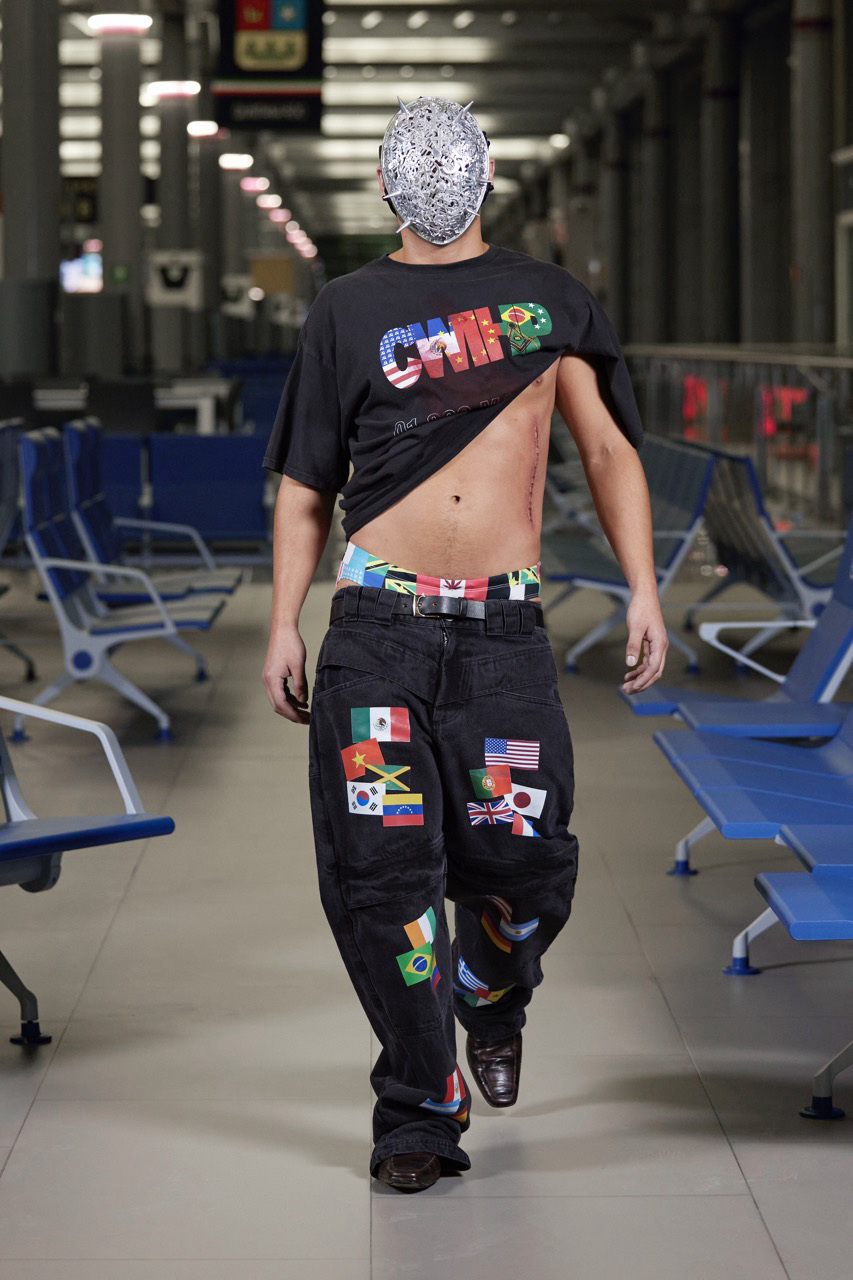
Barragán: I guess the selling point is you in whatever you do. I was so conflicted about like, Should I just keep posting some sexy pictures of men? Boom, worked. And I haven’t done that. That’s why I post a lot of memes and things like that. I was like, Damn, this is so not fun. You have to keep playing this game with it, so you can actually show your work.
Johnson: It’s blocking the provocateurs because it’s promoting this influencer culture, which is not provocative at all. That gets me on to this next point about intersectionality and how art and fashion are potentially fusing more recently. I really am sensing this a lot. The art world was so abstract and inaccessible to me. I would never even try. And then I was in the art world and everyone was like, “Oh, you are an artist though.”
Barragán: I started in fashion and people told me, “You are an artist using clothes. Just keep it like that. If you put it in a box, you are always gonna be overwhelmed, controlled.” I definitely see you as an artist first, and I feel like there’s a crazy thin line where, if you are in the fashion world, your work could have less meaning because it’s a product. Art is a product too, but it’s just different in the way it’s perceived.
Johnson: These terms—“jack of all trades, master of none”—have been planted there to make people like us, aka provocateurs, feel as if you have to be one thing. You’re less dangerous if you’re one thing. Your ideas can’t spread as vividly if you are stuck in one craft.
Barragán: Definitely not.
Johnson: If you could use one word to describe how fashion is right now, what would it be?
Barragán: Cheap. What about you?
Johnson: Uninspiring. Sorry guys, but it really just is uninspiring.



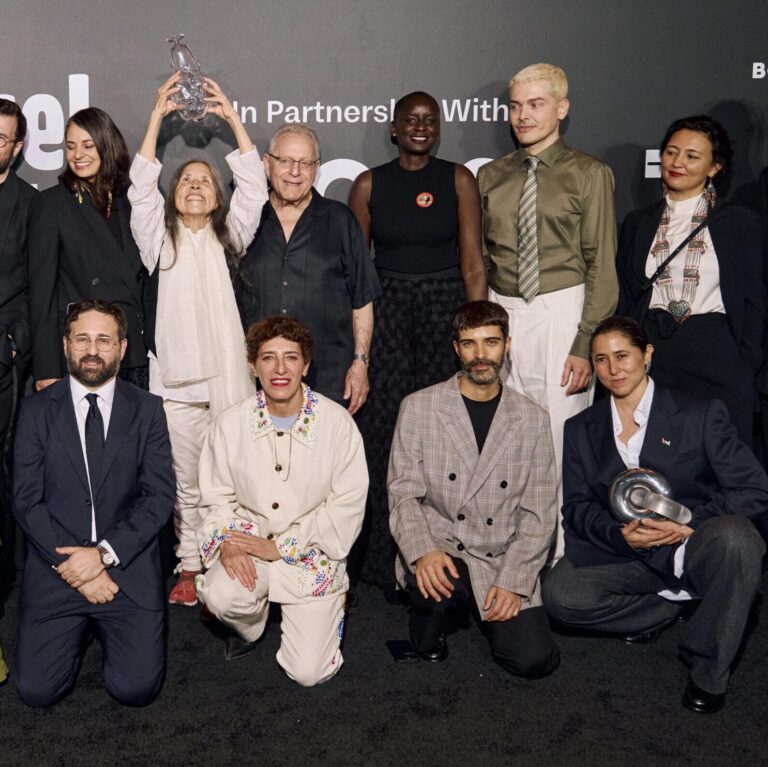


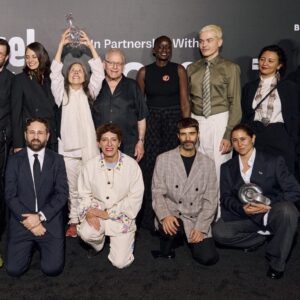



 in your life?
in your life?

